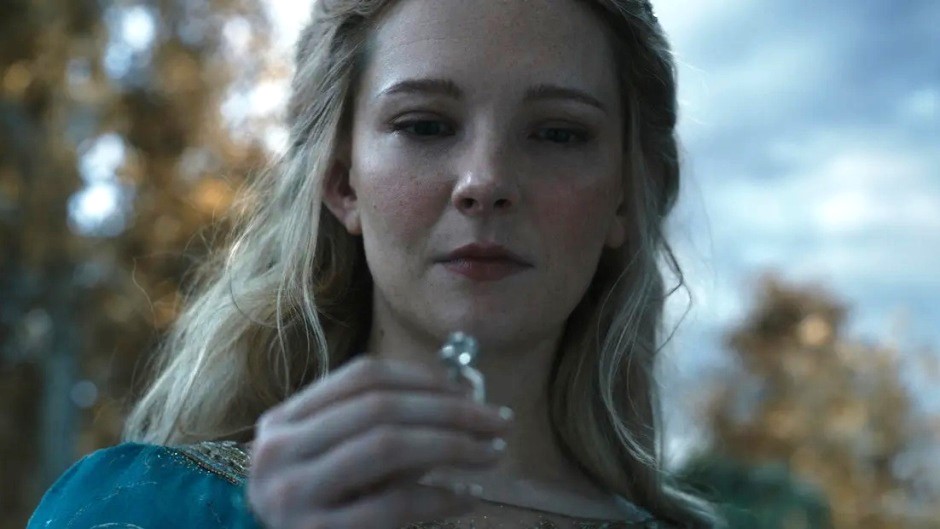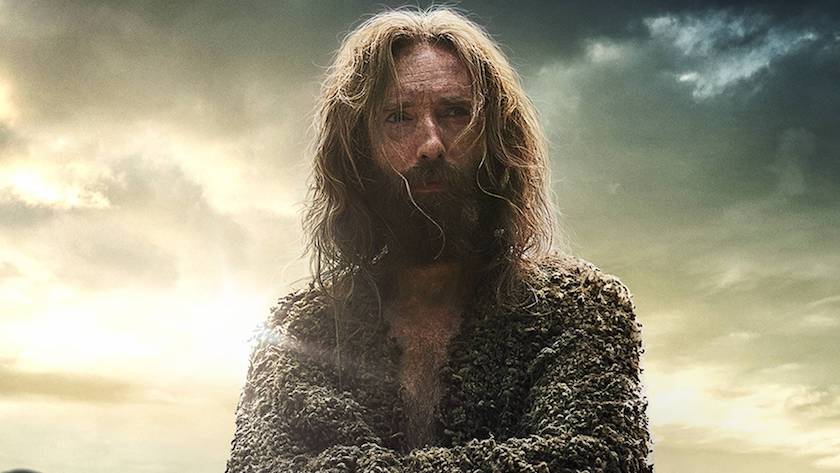In The Rings of Power it is not clear where the evil comes from. A much deeper presentation of the problem than the classic pagan vision of an eternal, impersonal force that simply exists to oppose good.
 A scene of Rings of Power's second season. / Photo: [link]Prime Video[/link].
A scene of Rings of Power's second season. / Photo: [link]Prime Video[/link].
The premiere of the second season of The Lord of the Rings: The Rings of Power is here and its arrival does not fail to strike me as most unnoticed.
I question the strategy and marketing, but also the timing: in the shadow of the second season finale of Dragon House, and in a hot (at least here in Spain) last week of August.
Perhaps my nostalgia for Peter Jackson’s trilogy (The Lord of the Rings, not The Hobbit) has generated a certain prejudice against Prime Video’s macro-production, but I think there is a certain degree of objectivity in stating that the first season has passed unnoticed in the brief history of streaming audiovisual content platforms.
In any case, the novelty of the story prior to Jackson’s first trilogy, which in Tolkien’s literature is mainly captured in The Silmarilion, is always an attention-grabbing factor. So it’s not hard to imagine that with this second season of The Rings of Power, Prime Video will be guaranteed some degree of competitiveness with HBO and its adaptations of George R. R. Martin0’s literature.
One of the things that struck me most about the first season, in comparison to Jackson’s first trilogy, is how unpredictable and unexpected the power of evil is. The elusive figure of Sauron, whose identity we do not know until the end of the season, creates an ambiguity that is more complex to assimilate than, for example, the clearly defined sides in Jackson’s film adaptation.
The New Zealand director begins by capturing the evil force that inhabits the ring and the conflict that has pitted the forces of Mordor against the rest of the free peoples since antiquity. In The Rings of Power it is not clear where the evil comes from, nor is it clear to what extent to expect further evidence of that evil to appear.
While this may discomfort the viewer (as the plot development may slow down) it does capture well the essence of the complexity of evil. Something much deeper than the classic pagan vision of an eternal, impersonal, universal force that simply exists to oppose good.

Indeed, the complexity of evil also has to do with its capacity to surprise us. Although we are familiar (in the Christian context) with the idea of a world subject to the vanity of sin, we are often surprised by the expression of that same sin as we recognise it in our lives and contexts. But especially as we recognise it in ourselves.
The gospel reveals God’s salvation, but also human sin and its magnitude. And in such a surprise we see the Holy and Eternal God as the Just and Merciful One, unable to tolerate injury to His holiness and, at the same time, provider for the necessary reconciliation with Him.
But do we Christians have an obsession to see evil everywhere? Rather, I would say, it is a question of honesty. And in that, House Of The Dragon is more realistic, as there is hardly any light and virtue in any of the characters, and the sides are not as sharply defined in this sense.
The honesty of recognising sin as a pervasive reality that affects any desire at root. Even as we seek ways to personify it. For we embody in objects (like the rings in the story), places and even people the most intimate of our longings, that sin in essence, even as we actually recognise it in ourselves. And after the surprise, comes the intersection: the hardening or that overwhelming weight that gives way to a necessary liberation such as repentance in Christ.
I have no doubt that our obsession to find some explanation for it all lies behind stories like the Rings of Power, and even in Tolkien’s books.
A world dominated by evil should necessarily look like the face of an orc, or a mountain spitting fire and poisoning the environment. But it is not so by the grace of God. Even in this world fallen by sin, the grass continues to give its greenness and the grace of the Creator continues to impress the heart.
Jonatán Soriano, journalist in Spain.
[analysis]
[title]One more year[/title]
[photo][/photo]
[text]At Evangelical Focus, we have a sustainability challenge ahead. We invite you to join those across Europe and beyond who are committed with our mission. Together, we will ensure the continuity of Evangelical Focus and Protestante Digital (Spanish) in 2024.
Learn all about our #OneMoreYearEF campaign here (English).
[/text][/analysis]

Las opiniones vertidas por nuestros colaboradores se realizan a nivel personal, pudiendo coincidir o no con la postura de la dirección de Protestante Digital.
Si quieres comentar o